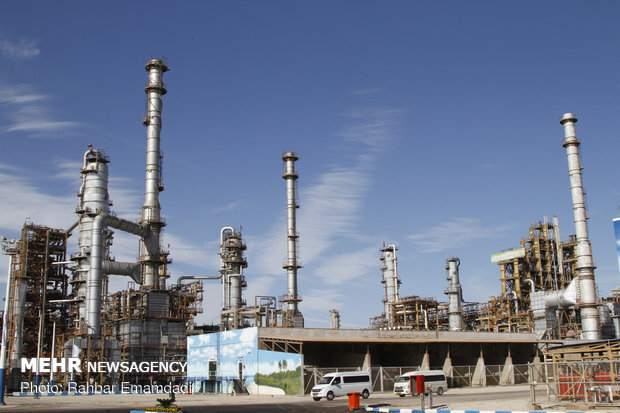Iran’s refining capacity to rise 250,000 bpd by March 2020

TEHRAN – Daily processing capacity of Iranian refineries is expected to increase by 250,000 barrels by the end of the current Iranian calendar year (March 19, 2020) to reach 2.4 million bpd, IRNA reported on Tuesday.
According to the Iranian Deputy Oil Minister Alireza Sadeqabadi, the country’s total refining capacity which was 1.55 million barrels per day (bpd) at the beginning of the Iranian calendar year of 1396 (March 21, 2017), currently stands at 2.15 million bpd.
“The upward trend will continue in the current year and we expect the [refining] capacity to reach 2.4 million bps by the end of the year,” he said.
Sadeqabadi noted that 850,000 barrels of crude oil and gas condensate, which were prevented from entering the global market by the unjust U.S. sanctions, are currently being refined inside the country into products with higher value added.
“Following the oil ministry’s new policies, by the end of the current fiscal year, the refining of gas condensates will increase from 450,000 bpd to 500,000 bpd and crude oil from about 1.7 million bpd to about 1.9 million bpd,” he said.
According to the official, most of the increase in the capacity is expected to come from the fourth phase of Iran’s Persian Gulf Star Refinery (PGSR) which is located in the southern province of Hormozgan.
The official noted that the mentioned phase is more focused on capacity optimization and fault elimination of existing phases.
In early May, PGSR Managing Director Mohammad-Ali Dadvar announced that the refinery’s processing capacity is going to reach 540,000 barrels per day (bpd) by the end of the current Iranian calendar year.
Last week, Iranian Parliament passed a bill for increasing the capacity of the country’s oil and gas condensate refineries.
The approval of the bill came after earlier this month the Research Center of Iran’s parliament announced that petro-refineries are two times more profitable than refineries and suggested that National Iranian Oil Company (NIOC)’s new refinery projects be defined as petro-refineries.
Since the U.S.’s withdrew from Iran’s nuclear pact in May 2018, vowing to drive Iran's oil exports down to zero, the Islamic Republic has been taking various measures to counter the U.S. actions and alleviate the impacts of the unjust sanctions on its economy.
EF/MA
Leave a Comment